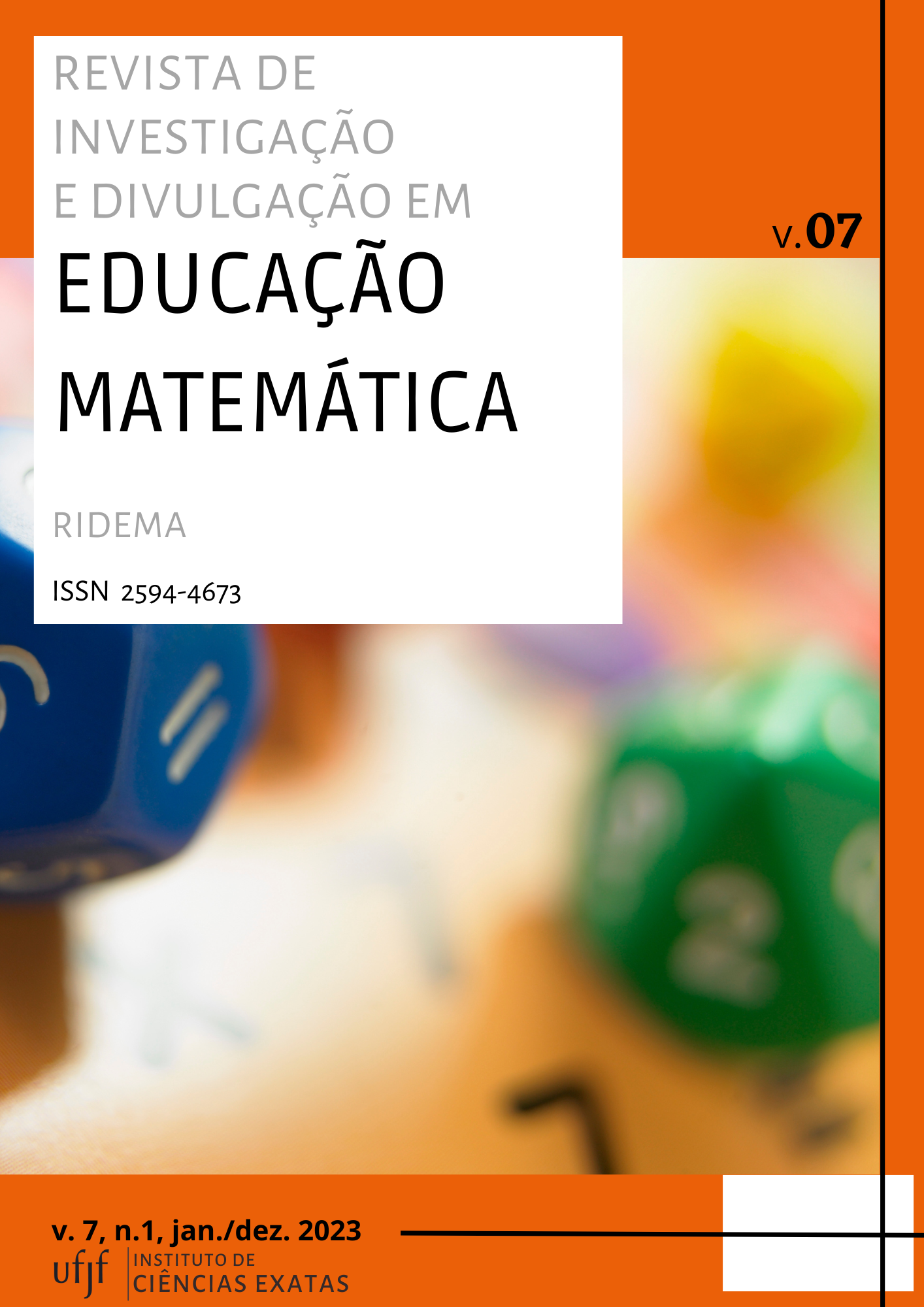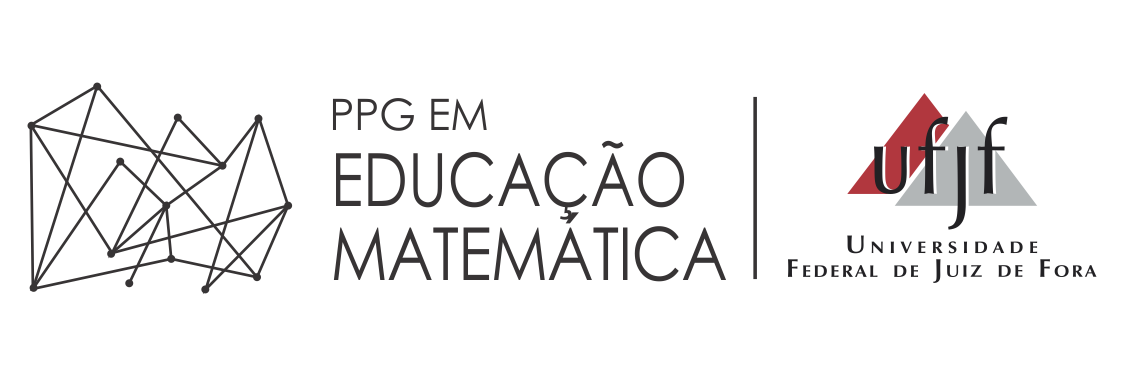Transdisciplinarity of the parabolic conic section: a transmethodical exercise
DOI:
https://doi.org/10.34019/2594-4673.2023.v7.41423Keywords:
Mathematics Mducation; Decoloniality; Planetarity; Complexity; Transdisciplinarity.Abstract
In profoundly disruptive and inclusive rhizomes, with a planetary-complex decolonial transmethodology, the complex objective of the inquiry is met, framed in the line of research: Transcomplex Planetary Decolonial Mathematics Education: sustain beyond the applications, but with them, the Decolonial transdisciplinarity of the parabolic conic section, as a transmethodical exercise. We use rhizomatic deconstruction as a transmethod. Research where the unidisciplinary crisis of mathematics teaching is deconstructed, still colonial and conceptualizing decolonial transdisciplinarity. Then we go to the reconstruction, making it more complex and exercising transdisciplines in the classical concept of conics, such as parabolas; history-philosophy-feeling-thinking-knowledge-knowledge of mathematics are transversalized with daily life, in a non-physical intersubjective space, where one learns with all the complexity of the human being. In a concert of fantasies, where parables are everywhere, we make their actions more complex in favor of knowing; for never definitive reasons. Transdisciplinarity never kidnapped in coloniality, no one's elite, never a substitute for disciplines, it really needs them more. Neither is transdiscipline science; but if exemplary in knowing and doing. Sciences - knowledge, abstract-concrete, theory-example; among other diatopias; make transdiscipline a knowledge-knowledge that arises from a concrete-abstract-theoretical-investigative-practical context of application; purposeful to solve real problems, leads to raise contingent and transcendent problems; reconciles topoi. Transdiscipline tends to be in permanent restructuring and self-analysis, adapting to the conditions that cause the need to create, it is artistic, imaginative, of feeling and deeply disruptive of doing; of what is excluded from the disciplines. We leave the construction open, we are fanatics for knowing and as in the work Ode to Numbers at its beginning: how eager I am to know, to count the stars.
Downloads
Metrics
References
BEDOYA, H. Los puntos ciegos de la transdisciplinariedad: una insuficiencia por subdisciplinariedad. Palabra, v. 19, n.1, p.175-187, 2019. https://doi.org/10.32997/2346-2884-vol.19-num.1-2019-2475
BERMÚDEZ, E.; LÓPEZ, J. Estudio histórico epistemológico y didáctico de la parábola. Praxis & Saber, v.9, n. 19, p.63 – 88, 2018. https://doi.org/10.19053/22160159.v9.n19.2018.7922
DELEUZE, Gilles. Conversaciones: 1972-1990. Valencia: Pre-Textos, 1995.
FREIRE, Paulo. La Educación en la Ciudad. México: Siglo XXI Editores, 1997.
HEATH, Sir Thomas. A history of Greek Mathematics. Vol. 1 (en inglés). Londres: Oxford University Press, 1921.
INGALA, E. La complejidad y el pensamiento de Gilles Deleuze. Δα´ιμων. Revista de Filosofía, suplemento 2, p.255-261, 2008.
MALDONADO-TORRES, N. Transdisciplinariedad y decolonialidad. Quaderna, n. 3, p.1-20, 2016. Disponible en: https://quaderna.org/wp-content/uploads/2016/01/pdf-NMTORRES.pdf Consultado el 4 de marzo 2023.
MORÍN, Edgar. Ciencia con conciencia. Barcelona: Anthropos, 1984.
MORÍN, Edgar. Introducción al pensamiento complejo. Barcelona: Gedisa, 2005.
MORIN, Edgar. Articular los saberes. ¿Qué saberes enseñar en las escuelas? Buenos Aires: Ediciones Universidad del Salvador, 1998.
NICOLESCU, Basarab. Nosotros, la partícula del mundo. 2nda edición, Monaco: Le Rocher, 1985.
NICOLESCU, Basarab. Manifiesto de la transdisciplinariedad. Paris: Ediciones Du Rocher, 1994.
NICOLESCU, Basarab. La transdisciplinariedad, una nueva visión del mundo. Manifesto. Centro Internacional para la Investigación Transdisciplinaria (CIRET). Paris: Ediciones Du, 1998.
LUGO, Javier. Secciones Cónicas: un estudio epistemológico y el análisis de su tratamiento en los libros de texto. Memoria presentada para optar por el título de Especialista en Didáctica de las Ciencias con orientación en Matemática. Buenos Aires: Universidad Nacional de General Sarmiento, 2014
PETRAGLIA, I.; VASCONCELOS, M. Um pensamento complexo para o conhecimento e a educação. In GUÉRIOS, E., PISKE. F H., SOEK. A.M.; Silva E. Complexidade e Educação: Diálogos Epistemológicos Transformadores. p. 67-80, 2017
REY, Abel. El apogeo de la ciencia técnica griega. Desarrollo de la matemática. México: Unión Tipográfica Editorial Hispano Americana, 1962.
RODRÍGUEZ, M. E. Deconstrucción: un transmétodo rizomático transcomplejo en la transmodernidad. Sinergias educativas, v. 4, n. 2, p. 43-58, jul./dic. 2019. https://doi.org/10.31876/s.e.v4i1.35
RODRÍGUEZ, M. E. Cohabitando con el conocimiento transdisciplinar: Estrategias para la convivencia de los saberes. Investigación Educativa Duranguense, v.11, n. 19, p.5-15, Agosto -diciembre 2019b. https://doi.org/10.5281/zenodo.3709412
RODRÍGUEZ, M. E. El pensamiento complejo como propedéutico para la transgestión de los saberes matemáticos. Revista Electrónica de Conocimientos, Saberes y Prácticas, v.3, n.1, p.72-89, 2020. https://doi.org/10.5377/recsp.v3i1.9792
RODRÍGUEZ, M. E. Transdisciplinariedad decolonial de la Educación Matemática. Conhecimento & Diversidade, v. 13, n. 29, p. 78 – 95 jan./abr. 2021a. https://doi.org/10.18316/rcd.v13i29.7564
RODRÍGUEZ, M. E. La transdisciplinariedad como eje transversal de la docencia universitaria: un constructo transmetodológico contra – resistencia. Revista Análisis, v. 53, n. 99, p. 1-30, 2021b. https://doi.org/10.15332/21459169.6333
SOCIEDADES BÍBLICAS UNIDAS. Santa Biblia. Caracas: Versión Reina-Valera, 1960.
VILLENA, M. Cónicas, 2009. Disponible en: https://acortar.link/CDed7N Consultado el: 3 de mayo 2023.



























